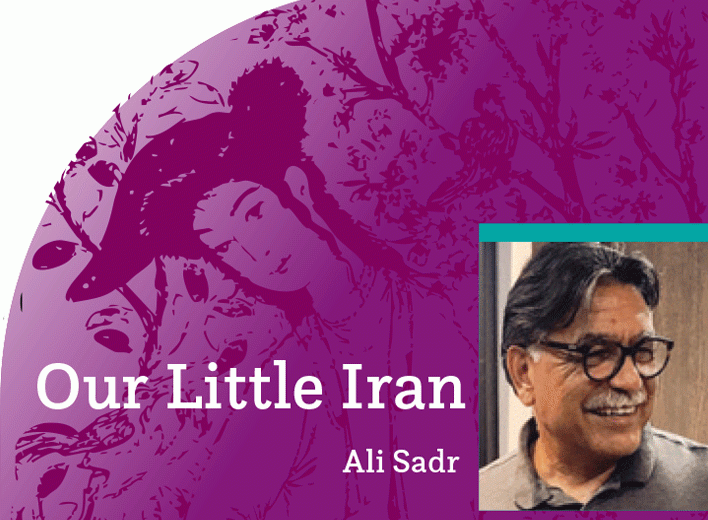The Unintended Benefits of FIFA’s Men’s Olympic Football Age Cap: Silver Linings Playbook
By Danial Golforoush
Association football, also known as soccer, has mostly been a mainstay in the Summer Olympic Games since 1900. Despite its historical presence, the men’s Olympic football tournament has always been subject to unique restrictions imposed by FIFA, the sport’s global governing body. These restrictions aim to prevent the Olympic tournament from overshadowing FIFA’s premiere event, the World Cup. Although this control might seem overbearing, it offers several unintentional and hidden benefits that contribute positively to the sport, including much-needed rest for senior players, valuable exposure for younger talent, and opportunities for countries with less-established football traditions to shine.
Football’s inclusion in the Olympics has a complex history. It was absent from the inaugural 1896 Games and was dropped from the 1932 Los Angeles Games to promote the new FIFA World Cup tournament. The sport returned to controversy at the 1936 Berlin Games, and it wasn’t until the 1984 Los Angeles Games that professional players were admitted, albeit with restrictions to prevent rivalry with the World Cup.
Since 1992, the introduction of the under-23 age limit has been a defining feature of the men’s Olympic football tournament. This format has created a distinct identity for the Olympic competition, separate from the senior international tournaments. While some traditional football powerhouses have struggled to adapt to this format, it has provided opportunities for other nations to shine.
FIFA’s Rationale for Restricting Participation
The primary reason behind FIFA’s restrictions is to avoid direct competition with the World Cup, the most prestigious tournament in international football. By limiting the age of participants in the Olympic men’s tournament, FIFA ensures that the World Cup remains the pinnacle of the sport. This strategic move helps maintain the World Cup’s status and prevents another high-profile international competition’s dilution of its value.
Moreover, the men’s Olympic football tournament is not included in the FIFA International Match Calendar. This means clubs are not required to release players for the Olympics, as they must for the World Cup or other senior international tournaments. This decision further cements the World Cup’s primacy and ensures that top players remain available for the most prestigious competitions.
The Blessing in Disguise
While FIFA’s control over the sport and its restrictions on Olympic participation might seem excessive, these limitations have inadvertently created several benefits for players, coaches, and the sport as a whole.

Rest for Senior Players
One of the most significant advantages of FIFA’s restrictions is the rest it provides for senior professional players. Top-tier footballers often play more than 50 matches per season, including club fixtures, international matches, and friendlies. This intense schedule leads to physical fatigue, injuries, and a drop in the quality of play, which affects both the players and the viewers’ desires.
By limiting participation in the Olympics to younger players, senior players receive a much-needed break during the summer. This rest period allows them to recover physically and mentally, reducing the risk of injuries and ensuring they can perform at their best during the regular season and more critical international tournaments.
Fans and coaches also appreciate this respite. Supporters want to see their favorite players performing at their peak, and coaches need their key players fit and healthy for crucial matches and on-the-field tactical battles. The Olympic break aligns with these desires, providing a win-win situation for all parties involved.
Opportunity for Under-23 Players
Another significant benefit of FIFA’s age restrictions is the opportunity it creates for under-23 players and those who may not be playing for top European clubs. The Olympics provide a unique platform for these young talents to gain exposure and experience in an international competitive setting. This experience is invaluable for their development and can accelerate their progression into senior national teams and top club sides.
For many young players, the Olympics serve as a stepping stone to greater achievements. Competing against peers from around the world in a high-stakes environment helps them develop the mental and physical attributes necessary to succeed at the highest levels of the sport. Additionally, the visibility of the Olympics can attract attention from scouts and clubs, opening doors to new opportunities and career advancements.
Level Playing Field for Smaller Nations
FIFA’s restrictions also have a democratizing effect on the competition. Historically-dominant football nations, such as Brazil, Germany, and Argentina, have an impressive record in senior international tournaments like the World Cup. Out of 22 World Cup finals, only eight different teams have won the tournament. This dominance can discourage smaller or less-established footballing nations, who often struggle to compete against these powerhouses. Even though Brazil won the last two iterations of the Olympic tournament, South Korea and Nigeria placed third, which would be much less likely in the FIFA World Cup setting. By no means is this intended to fantasize about the current conditions given that, more often than not, “legacy” football countries still have stronger and better-funded U23 sides; however, the contrast is much less than at the senior level.
The Olympic football tournament, with its age restrictions, levels the playing field. Smaller nations have a better chance to compete and win medals when the playing field is more balanced. This increased competitiveness can inspire greater interest and investment in football within these countries, contributing to the sport’s global growth.
African nations, in particular, have benefitted from this format. Nigeria and Cameroon, for instance, won the gold medals in the 1996 and 2000 Olympics, respectively. These victories not only boosted the sport’s profile in these countries, but also showcased the potential of African football on the world stage.
The Women’s Tournament: A Contrast
The women’s Olympic football tournament stands in stark contrast to the men’s competition, both in terms of structure and significance. Unlike the men’s tournament, which is limited to players under 23 years of age with a few exceptions, the women’s tournament is a full senior-level international competition. This makes it one of the most prestigious events in women’s football, second only to the FIFA Women’s World Cup.
One of the key differences is that the women’s tournament is included in the FIFA International Match Calendar. This inclusion ensures that clubs are required to release their players for the Olympics, allowing the best female footballers from around the world to participate. This guarantees a high level of competition and showcases the top talent in women’s football on one of the biggest stages in sports.
The significance of the women’s Olympic football tournament extends beyond the field. It plays a crucial role in promoting gender equality in sports. By providing a platform for female athletes to compete at the highest level, the tournament helps to raise the profile of women’s football and inspire the next generation of players. The visibility and success of women’s football at the Olympics have contributed to increasing interest, investment, and participation in the sport globally.
Moreover, the women’s tournament has recently seen a more diverse range of winners compared to the men’s World Cup. Countries like the United States, Germany, and Norway have all claimed gold medals, highlighting the competitive nature of the tournament. This diversity in winners reflects the growing strength and development of women’s football worldwide.
Conclusion
FIFA’s restrictions on the participation of elite players in the men’s Olympic football tournament are often viewed through a critical lens. Critics argue that such control stifles the sport and limits the spectacle of the Olympics. However, a closer examination reveals that these limitations offer several benefits that contribute positively to football.
While FIFA’s almost absolute control over football may not be ideal, it is a complex and multifaceted issue. The restrictions on Olympic participation, though seemingly limiting, ultimately contribute to the sport’s health and growth. They ensure that senior players can rest, youth players can shine, and the global football community can witness a more inclusive and competitive tournament. In this way, FIFA’s approach to the Olympics has unintentionally become a blessing in disguise for the beautiful game.


















